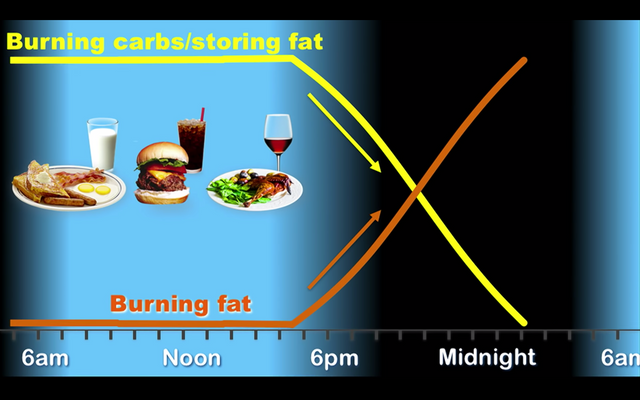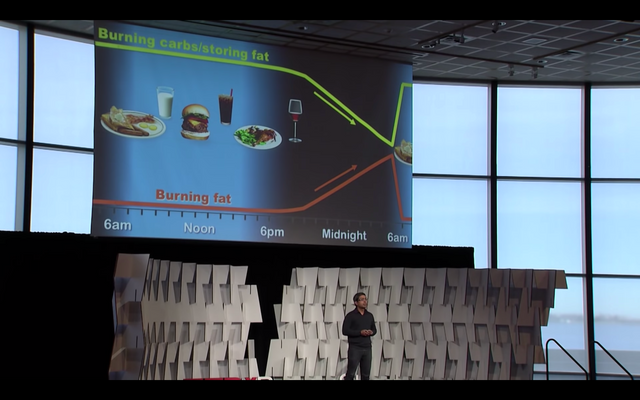
Intermittent fasting is something what I practise for quite some time (1,5 year or so) and today is a day when I decided to go deeper in the research to find scientific benefits of this way of eating, to expend my list of benefits of this method beyond just I feel better and sharper than ever before. Here is what I found and learn during this morning.
I am going to start with explaining something called circadian rhythm (or near-24hour rhythms). To adapt to the 24-hour light-dark cycle on our planet, almost every plant and animal has circadian rhythms that are controlled by something called circadian clocks. These are actually encoded in our DNA.
How do we know, that these clock are in-built? If you lock me inside the apartment with no clue about outside time, then my circadian clock will make me to go to sleep around 10:00pm. I’ll go to deep sleep around 2:00pm and anticipating waking up, my body will warm up around 4:00am in the morning.
Almost every single gene in our body turns on and off at different times of the day, even when I am closed in the apartment with no knowledge of an outside world. (Same applies for every single hormone and brain chemical). So to have this rhythms is to actually have health.
It does matter also when we eat.
After our first breakfast, our body absorbs enough carbohydrates and uses it to fuel our body. At the same time, it saves little bit of nutrient as fat. As we continue, at lunch and dinner the same process continues. And after the last dinner, last bite a body goes low on carbs and at the same time circadian clock cranks up the morning fat. (see the picture below) And after few hours, the clock turns into reset and repair rejuvenation mode. That means that it turns on enzymes that will break down cholesterol and toxins.

It also turns on the mechanisms to repair the DNA that we have damaged during the daytime. And a lot of cells that are damaged on our stomach lining or our skin lining are also replaced with healthy new cells, so that allergy-causing chemicals or bacteria cannot get into our body. So after 12 or 16 hours of fasting, when we eat our next breakfast, the cycle of nurture, rejuvenation continues.
Now imagine that you delay that last bite late into the night, in this case that this daily rhythm in metabolism becomes shallow. There is not enough time to burn fat and there is not enough time to break down the toxins and cholesterol etc. (picture below)

So you can imagine that somebody who eats within 10 hours has much better circadian rhythm whereas somebody who eats within 15 hours may not.
Tomorrow, I will tell you how scientist tested this idea, so stay tuned if you are interested.
Thanks for reading so far :-)